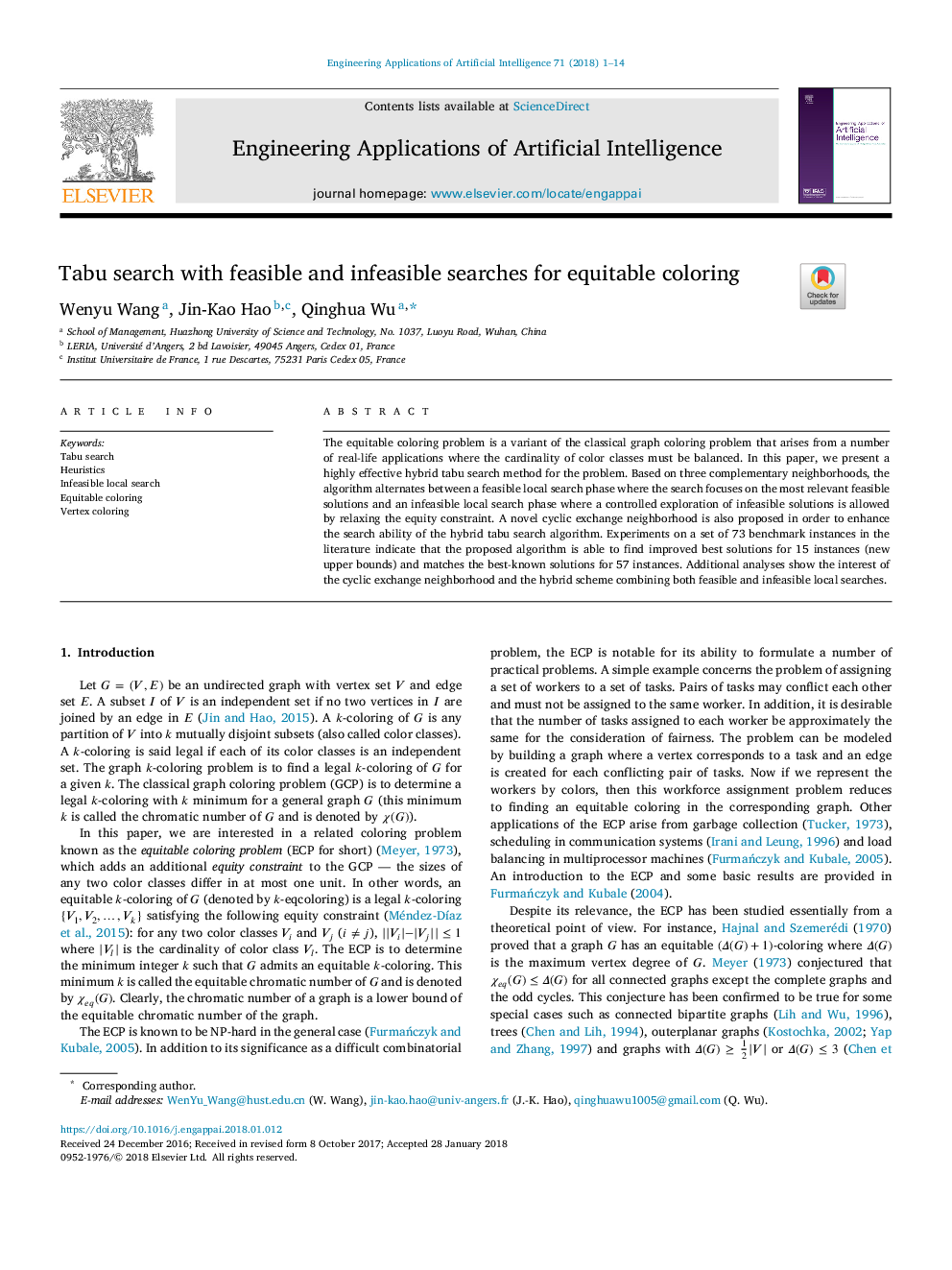| Article ID | Journal | Published Year | Pages | File Type |
|---|---|---|---|---|
| 6854167 | Engineering Applications of Artificial Intelligence | 2018 | 14 Pages |
Abstract
The equitable coloring problem is a variant of the classical graph coloring problem that arises from a number of real-life applications where the cardinality of color classes must be balanced. In this paper, we present a highly effective hybrid tabu search method for the problem. Based on three complementary neighborhoods, the algorithm alternates between a feasible local search phase where the search focuses on the most relevant feasible solutions and an infeasible local search phase where a controlled exploration of infeasible solutions is allowed by relaxing the equity constraint. A novel cyclic exchange neighborhood is also proposed in order to enhance the search ability of the hybrid tabu search algorithm. Experiments on a set of 73 benchmark instances in the literature indicate that the proposed algorithm is able to find improved best solutions for 15 instances (new upper bounds) and matches the best-known solutions for 57 instances. Additional analyses show the interest of the cyclic exchange neighborhood and the hybrid scheme combining both feasible and infeasible local searches.
Related Topics
Physical Sciences and Engineering
Computer Science
Artificial Intelligence
Authors
Wenyu Wang, Jin-Kao Hao, Qinghua Wu,
